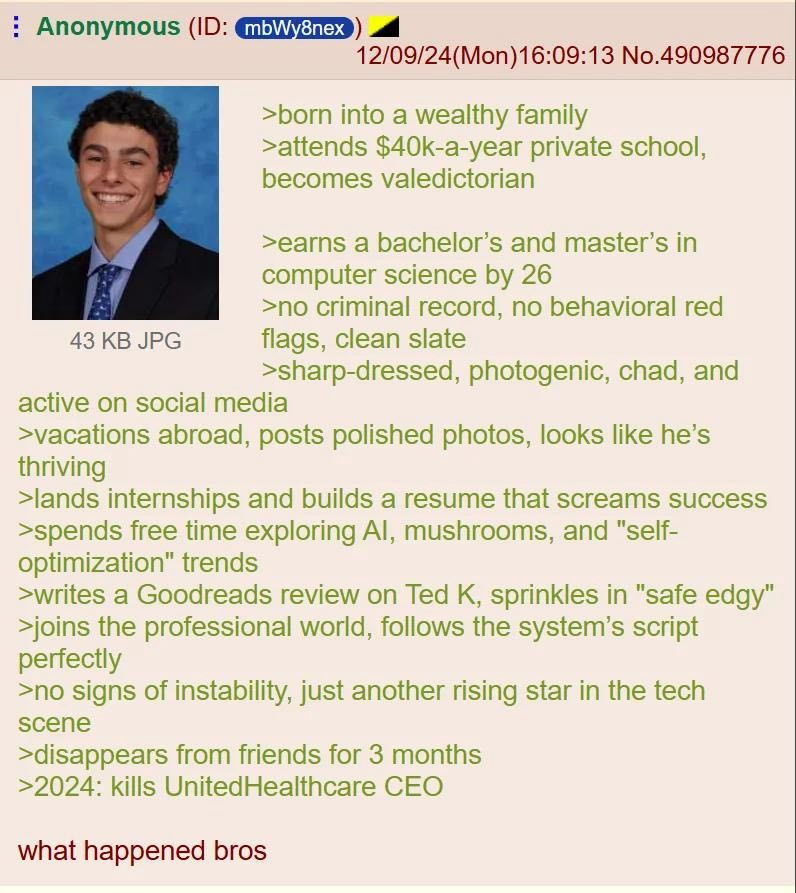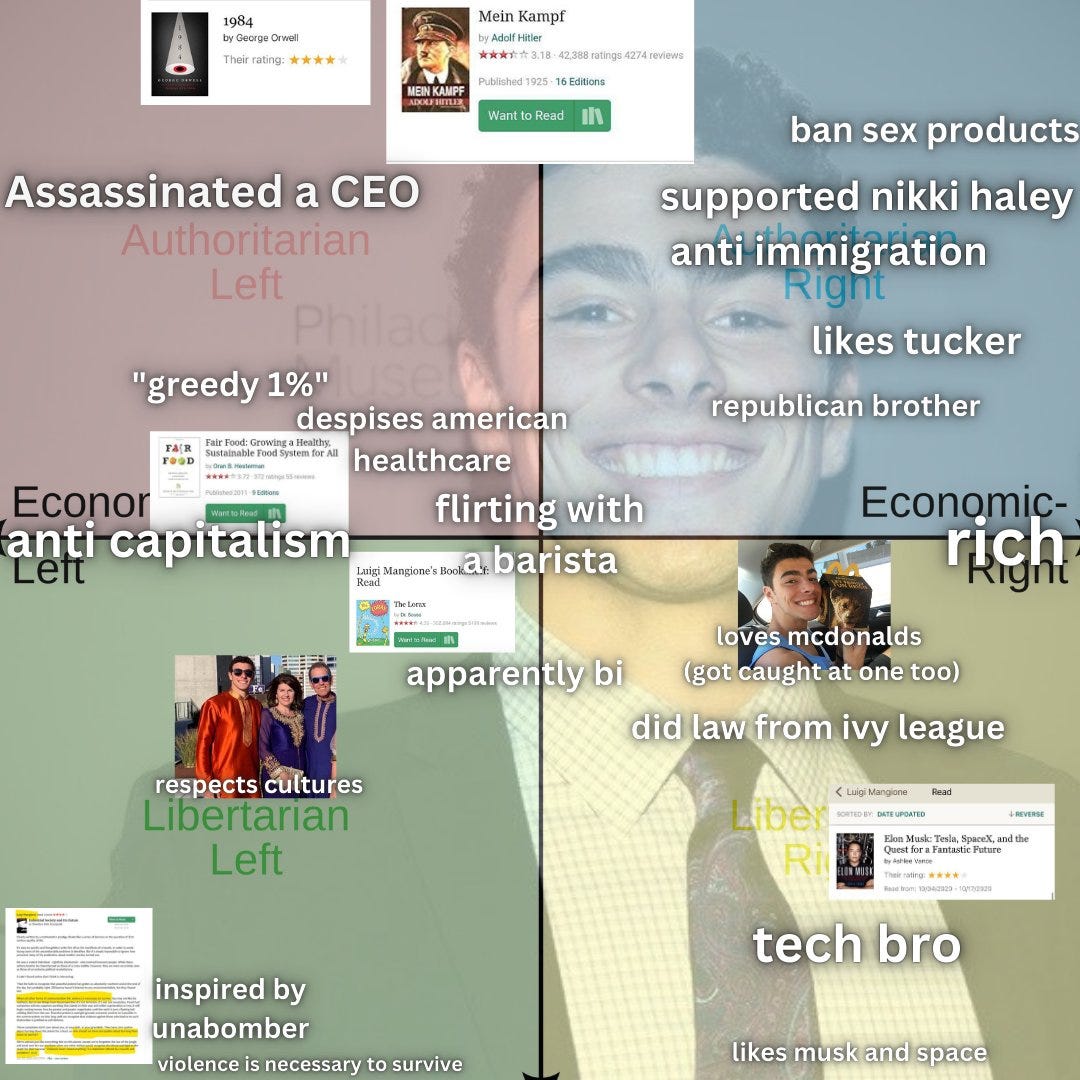Sensemaking Luigi and Spectre of Uncle Ted
A friend asked me to make sense of what's happening with the situation involving the suspected assassin Luigi Mangione. My “sensemaking” these days basically involves reading a bunch of Substacks from various perspectives, friends sending me edgy memes, and then sensing where things intersect. Here are some perspectives:
Before his identity was released, leftists speculated that he might be an anticapitalist, interpreting the situation as evidence that the old culture war is over and a new class war is beginning. This was evidenced by large parts of the online left and right appearing unified, with Luigi emerging as a new folk hero.
After his identity was released, his social media accounts portrayed him as a “centrist tech bro” who went down a “techno-pessimist” rabbit hole, influenced by the Unabomber—known to the tech bros as “Uncle Ted”—whom he regarded as a revolutionary figure.
Of course, those with a good dose of paranoid awareness and skepticism of any “official narrative” see him as an MK-Ultra patsy, perhaps serving as a distraction from what's happening in Syria while the world seems to escalate toward WWIII.
Or, based on what we know now, it might not even be him.
My take: There seems to be vibe shift after vibe shift happening these days. The old narratives are dead, and those who see themselves as having the power to introduce new ones—a.k.a. those with “narrative agency” (Substackers)—are emboldened to present them. Narrative agency involves making speech acts that not only describe reality but shape it. This sparks new “hyperstitions” (or unwittingly perpetuates the legacy of old ones): narrative spells that captivate minds and shape the world in the process.
What happens when a bunch of people are out there expressing narrative agency all at once, and in completely different directions? You can try to ideologically silo yourself, but with enough narrative-breaking vibe shifts, you will eventually become “schizo”—internet slang repurposed not to mean being schizophrenic, but to describe being overwhelmed by too many perspectives and boldly blending them together in ways that (initially) may not make sense to others.1
Connected to this, I came across this meme years ago on a dissident-right Substack, and saved it as a good representation of an emerging view:
To unpack the meme's argument:
The PSYCHOPATHS, or what we can call “neoliberal pathocrats,” a.k.a. the power elite profiting from a system that is predatory and parasitic to the masses, easily manipulate the NARCISSISTS—useful idiots who virtue signal causes that serve as red herrings, diverting attention away from those who actually hold power and placing the NORMIES into a state of fear. The SCHIZOS, the rare few who dare to see the truth, identify systems of power, and recognize those who benefit from them, are held back by those who uphold societal norms but ultimately take action against true power.
Of course, this is a narrative in itself and one that Luigi seems sympathetic to, given his admiration for the Unabomber. If you read his 1995 manifesto, you’d know he’d agree with the argument this meme presents. The spectre of Uncle Ted lives on; by getting his manifesto published in The Washington Post he made himself into a meme. So has Luigi. Given his attractiveness, he has leveraged collective hybristophilia, which sets a violent precedent by inspiring copycats—more lost men, who feel abused by the system and those who profit from it, striving to become memes.
I do not know if class war is the best overarching framing, nor does it feel good to see public assassinations being glamorized. However, my overall sense is this: the “schizos” will increasingly become aware of who has real power.
If you have any questions, insights, feedback, or criticism on this entry or more generally, message me below (I read and respond on Saturdays) …
Being “schizo” leads to what Integral philosopher Ken Wilber would call “aperspectival madness”: “I summarized this postmodern disaster with the term ‘aperspectival madness,’ because the belief that there is no truth—that no perspective has universal validity (the ‘aperspectival’ part)—when pushed to extremes, as postmodernism was about to do, resulted in massive self-contradictions and ultimate incoherency (the ‘madness’ part). And when aperspectival madness infects the leading-edge of evolution, evolution’s capacity for self-direction and self-organization collapses.” (Wilber, Trump and a Post-Truth World)





